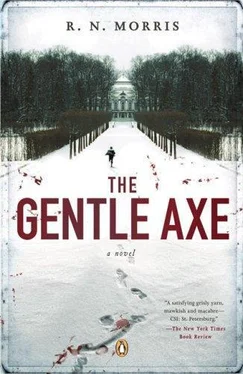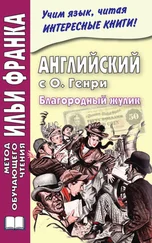R. Morris - The Gentle Axe
Здесь есть возможность читать онлайн «R. Morris - The Gentle Axe» весь текст электронной книги совершенно бесплатно (целиком полную версию без сокращений). В некоторых случаях можно слушать аудио, скачать через торрент в формате fb2 и присутствует краткое содержание. Год выпуска: 2008, ISBN: 2008, Издательство: Penguin Books, Жанр: Исторический детектив, на английском языке. Описание произведения, (предисловие) а так же отзывы посетителей доступны на портале библиотеки ЛибКат.
- Название:The Gentle Axe
- Автор:
- Издательство:Penguin Books
- Жанр:
- Год:2008
- ISBN:9780143113263
- Рейтинг книги:5 / 5. Голосов: 1
-
Избранное:Добавить в избранное
- Отзывы:
-
Ваша оценка:
- 100
- 1
- 2
- 3
- 4
- 5
The Gentle Axe: краткое содержание, описание и аннотация
Предлагаем к чтению аннотацию, описание, краткое содержание или предисловие (зависит от того, что написал сам автор книги «The Gentle Axe»). Если вы не нашли необходимую информацию о книге — напишите в комментариях, мы постараемся отыскать её.
The Gentle Axe — читать онлайн бесплатно полную книгу (весь текст) целиком
Ниже представлен текст книги, разбитый по страницам. Система сохранения места последней прочитанной страницы, позволяет с удобством читать онлайн бесплатно книгу «The Gentle Axe», без необходимости каждый раз заново искать на чём Вы остановились. Поставьте закладку, и сможете в любой момент перейти на страницу, на которой закончили чтение.
Интервал:
Закладка:
Porfiry blinked excessively again as he took in the tension in her expression. At last he said: “I would like to search Stepan Sergeyevich’s room. And also to have a look in Borya’s shed. Did Borya have an axe?”
“Yes, of course. He had many axes.”
“Of course, what yardkeeper doesn’t have a good collection of axes! Even so, it is useful to have it confirmed. Especially as I expect that I will find one of his axes missing.”
“He killed him with the axe!” cried Katya.
“An axe is involved in these crimes, that’s true,” said Porfiry, turning to Katya. “But I’m curious to know why you are so convinced that Borya killed Stepan Sergeyevich. I have not said that.”
“And Borya was murdered too, Katya.” Anna Alexandrovna appealed to Porfiry: “You did say that they were both murdered?”
“Apparently.”
“Was it with the axe?” pressed Katya.
Porfiry smiled but didn’t answer. “Perhaps you would show me to Stepan Sergeyevich’s room?” He placed the glass on the tray and stood up.
Porfiry stooped to enter the room, a tiny space with sloping walls in the apex of the house.
“It’s very cramped,” he observed to Katya, who had shown him up.
“Stepan Sergeyevich was comfortable enough,” she answered from the doorway. There was not room for them both inside. “He didn’t need anywhere bigger. He never complained.”
Porfiry took in the details of the dead man’s lodging: the child-sized bed tucked beneath the eaves, the desk and single chair, both sawed off at the legs. The other furniture consisted of an enormous-seeming ottoman and an ornately carved trunk of dark wood. Through a small dormer window he looked down on Srednyaya Meshchanskaya Street. The sky was darkening. It seemed that there was a blizzard thickening in the air. But the room was warm: the heat of the house rose into it. Unlike the highly varnished parquet of the lower apartments, the floor was of rough boards. The room was clean, however. Porfiry looked around for an icon on the white-painted walls but did not see one.
On the desk, there was a neat pile of paper and an open book. Porfiry lifted the book to glance at the cover. It was the first volume of Proudhon’s Philosophie de la misère.
“The Philosophy of Misery,” said Porfiry aloud. The book was open on page 334. A phrase from the middle of the page, underlined in red ink, drew his attention: “J’insiste donc sur mon accusation.” Porfiry returned the book to the desk. He picked up the top sheet from the pile of paper. He saw that it bore-written in a flamboyant hand and also in red ink-a Russian translation of the page he had just glanced at. In it, the phrase “I insist therefore on my accusation” was also underlined. In the Russian version, the words immediately following this were: “The father of Faith will be the destroyer of Wisdom.” Startled by the strange statement, he checked the original French text. There, after the underlined phrase, he read: “Sous le régime aboli par Luther et la révolution française, l’homme, autant que le comportait le progrès de son industrie, pouvait être heureux…” The Russian translation of this phrase-“Under the regime abolished by Luther and the French Revolution man could be happy in proportion to the progress of his industry…”-came only after the interpolation concerning the father of Faith.
Porfiry placed the sheet back on top of the pile and turned to Katya with a smile. “And you keep it tidy for him. It seems to me Anna Alexandrovna runs a well-ordered household. She is a good mistress, I would say.”
“The best.”
“Tell me, did anything else unusual happen on the day of the argument? Did Goryanchikov or Borya have any visitors, for example?”
“There was a boy,” answered Katya with surprise.
“A boy? What boy is this?”
“I don’t know. I had never seen him before. It was strange. He insisted on seeing Stepan Sergeyevich. And on his way out he called on Borya in his shed. Soon after that they had their argument. And soon after that Stepan Sergeyevich went out.”
“Wearing his shuba ?”
“Of course…as Anna Alexandrovna has said.”
“And how soon after Stepan Sergeyevich went out did you notice that Borya was missing?”
“Well, of course, the yard needed clearing. We couldn’t open the door for the snow. We had to ask Osip Maximovich’s man Artur to do it for us. He wasn’t happy about that, I can tell you. Considers himself above such tasks.”
“And who has kept the yard clear for you in Borya’s absence?”
“Anna Alexandrovna has come to an arrangement with one of the neighbors’ yardkeepers. He sometimes helps us out when Borya goes missing.”
“This boy interests me. Was he a friend of Anna Alexandrovna’s daughter perhaps?”
“No!” cried Katya, outraged at the suggestion. “He was a scruffy little urchin. Sofiya Sergeyevna would have nothing to do with the likes of him. Besides, he was only about ten years old.”
“And how old is Sofiya Sergeyevna?”
“She was thirteen at her last birthday.”
“I see. Tell me more about this boy. Did you speak to him?”
“I answered the door to him. And I would have shut the door in his filthy face too if Stepan Sergeyevich hadn’t come down and seen him.”
“Did Stepan Sergeyevich know the boy?”
“I don’t think so. But he heard him asking for him by name.”
“So he had the boy admitted and brought him up here to his room? How long did the boy stay?”
“Not long. Ten minutes at the most. If that.”
“Does Stepan Sergeyevich give lessons as a tutor?”
“Not anymore. And this boy was not the sort of boy to have lessons. He had a stupid face.”
“You took against the boy, I can see.”
“He left a trail of dirty footprints throughout the house. It was a job to get them out.”
“And what about Stepan Sergeyevich? Did you like Stepan Sergeyevich?”
The question went unanswered.
“Katya?”
“One should not speak ill of the dead.”
“He was a difficult man to like, though, wasn’t he?”
“He was a devil.”
“Do you know a friend of Goryanchikov’s called Pavel Pavlovich Virginsky?”
“I believe there is a gentleman of that name who visited from time to time.”
“Did he visit on the day of Goryanchikov’s disappearance?”
“No. However, it’s strange you mentioned it…He called to visit Stepan Sergeyevich yesterday.”
“Yesterday? What time was this?”
“It was late. Very late. Anna Alexandrovna and her daughter had both gone to bed. He knocked the whole house up.”
“And he asked to see Stepan Sergeyevich?”
“He demanded to be admitted to his room.”
Porfiry fumbled in his pockets for his enameled cigarette case. A severe frown from Katya deterred him from opening it. Nonetheless, in this instance, he found the touch of it stimulating enough.
OUTSIDE, Porfiry finally lit the cigarette he craved. The blizzard he had seen massing from Goryanchikov’s room had blown itself out. But the courtyard had already been cleared. Porfiry felt sorry for Borya, whose death had been so quickly and easily compensated for, as if erased beneath a snowfall.
Inside the yardkeeper’s shed it was as if the objects of his life were shaping themselves around the fact of his death, around his physical absence. There was an old paint-spattered wooden chair, its seat worn and polished by many sittings. It was crammed in next to a folding card table, the baize threadbare and stained. The samovar on it seemed to possess an air of mournful disappointment. Chipped cups milled around it without purpose. The sawdust had settled on the floor, around an assortment of bricks and logs. The bottom of a barrel was propped up against one of the shed’s sides. Life continued only in the cobwebs that grew heedless over the tools and tins of his occupation.
Читать дальшеИнтервал:
Закладка:
Похожие книги на «The Gentle Axe»
Представляем Вашему вниманию похожие книги на «The Gentle Axe» списком для выбора. Мы отобрали схожую по названию и смыслу литературу в надежде предоставить читателям больше вариантов отыскать новые, интересные, ещё непрочитанные произведения.
Обсуждение, отзывы о книге «The Gentle Axe» и просто собственные мнения читателей. Оставьте ваши комментарии, напишите, что Вы думаете о произведении, его смысле или главных героях. Укажите что конкретно понравилось, а что нет, и почему Вы так считаете.












